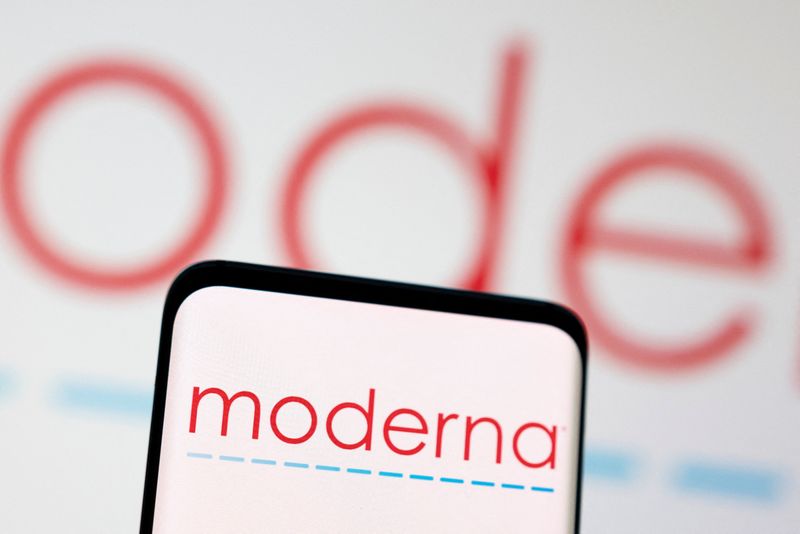By Manas Mishra
(Reuters) -Moderna Inc on Wednesday forecast higher vaccine sales for the second half of the year than in the first six months, as it expects the virus that causes COVID-19 to follow a more seasonal pattern requiring booster shots in the fall.
The U.S. vaccine maker is developing a potential next generation booster targeted at both the Omicron variant as well as the original strain of the coronavirus in hopes of producing broader protection.
"The desired features for a northern hemisphere fall winter booster we think will be that it improves the durability of neutralizing antibodies against Omicron," said Moderna (NASDAQ:MRNA) President Stephen Hoge.
Hoge expects annual boosters to be needed for people at high-risk of severe illness, which Moderna estimates consists of roughly 1.7 billion people worldwide.
Moderna forecast $21 billion in 2022 COVID-19 vaccine sales but cautioned that it could be lower if the COVAX international vaccine-sharing program is unable to confirm demand for the shots from low- to middle-income countries.
Chief Financial Officer David Meline, however, said sales could be higher if the United States and other countries decided to sign contracts for a fall booster dose.
Pfizer (NYSE:PFE) on Tuesday maintained its 2022 forecast of $32 billion for sales if its rival COVID vaccine developed with BioNTech after raising it every quarter last year, a sign that dizzying growth has slowed.
Sales of Moderna's vaccine - its lone commercial product - rose to $5.9 billion in the first quarter from $1.7 billion a year ago. Total sales of $6.1 billion beat estimates of $4.62 billion, according to IBES data from Refinitiv.
The results and forecast appeared to ease some worries about vaccine sales this year, as Moderna shares rose more than 6% in pre-market trading. But they turned negative and were down around 1% in line with the broader Nasdaq.
Moderna delivered an exceptionally strong first quarter, said Lee Brown at research firm Third Bridge.

But future vaccine sales remain uncertain as countries relax pandemic curbs, cases fluctuate, and the demand for annual boosters has yet to be determined.
"Of course, the focus is less on 2022," Brown said, "and remains on Moderna’s future, when revenue is expected to plummet."